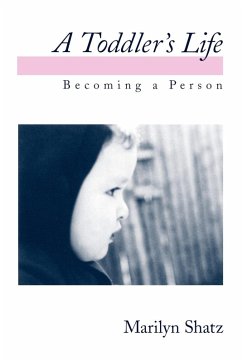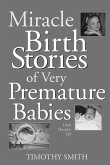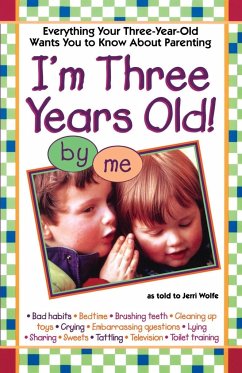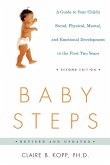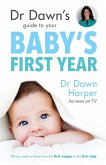This book uses the case study method to investigate the essence of toddlerhood - the development of sociolinguistic intelligence that will transform the infant into a child. The author offers a comprehensive picture of the whole child and the rapidly developing skills of the toddlers as they grow into childhood. This is a fascinating insight into the mysteries of human development which will be invaluable to researchers of child psychology and development.
What sets humans apart from other social animals? In an intimate account of a child's development from age one to three, distinguished psychologist Marilyn Shatz answers this question by arguing that humans are unique in their ability to reflect on themselves, to compare themselves to others, and to self-correct. Language plays a central role in such processes because it offers the developing child a powerful tool for going beyond immediate experience to an understanding of unobservable states and motivations. In addition to her two decades of research in developmental psychology, Shatz draws on observations of her grandson Ricky to show how toddlers use their cognitive, social, and linguistic skills to understand and eventually to employ language as a means for successfully engaging others. Shatz expertly brings the dialogue of the toddler to life, plotting the turning points in Ricky's progress from fifteen-month-old one-word speaker to three-year-old articulate preschooler. The story of a child's increasingly sophisticated involvement with an expanding world is here generalized to other young children and skillfully interwoven with both empirical research and insightful commentary about the nature of human' learning in a social setting. Parents, teachers, researchers, and students of developmental psychology and psycholinguistics will find this book to be an interesting and engaging study of early developmental processes.
Hinweis: Dieser Artikel kann nur an eine deutsche Lieferadresse ausgeliefert werden.
What sets humans apart from other social animals? In an intimate account of a child's development from age one to three, distinguished psychologist Marilyn Shatz answers this question by arguing that humans are unique in their ability to reflect on themselves, to compare themselves to others, and to self-correct. Language plays a central role in such processes because it offers the developing child a powerful tool for going beyond immediate experience to an understanding of unobservable states and motivations. In addition to her two decades of research in developmental psychology, Shatz draws on observations of her grandson Ricky to show how toddlers use their cognitive, social, and linguistic skills to understand and eventually to employ language as a means for successfully engaging others. Shatz expertly brings the dialogue of the toddler to life, plotting the turning points in Ricky's progress from fifteen-month-old one-word speaker to three-year-old articulate preschooler. The story of a child's increasingly sophisticated involvement with an expanding world is here generalized to other young children and skillfully interwoven with both empirical research and insightful commentary about the nature of human' learning in a social setting. Parents, teachers, researchers, and students of developmental psychology and psycholinguistics will find this book to be an interesting and engaging study of early developmental processes.
Hinweis: Dieser Artikel kann nur an eine deutsche Lieferadresse ausgeliefert werden.

